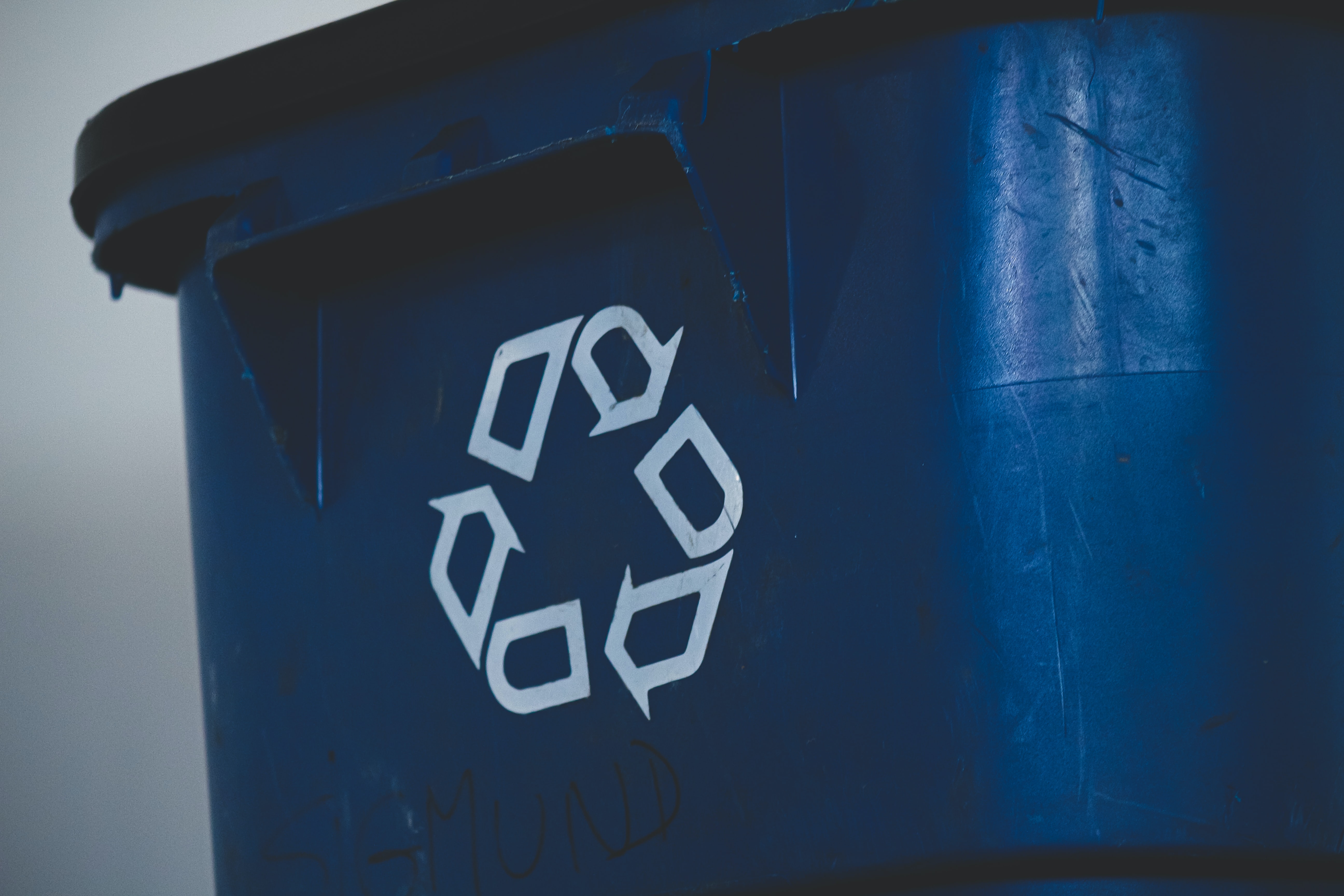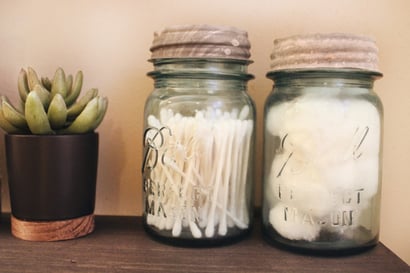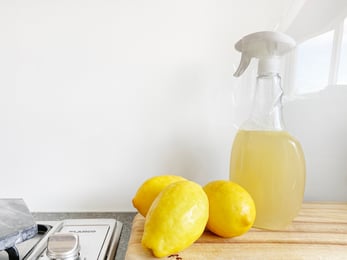
Climate change is a critical issue facing all of us. Individuals and families can make a positive impact by starting with small steps to reduce their environmental footprint. Urgent action is needed, but it may seem entirely overwhelming to get started, so we've put together some of our top tips to create an eco-friendly household. Plus, these changes will save you money too!
1. Reduce Reuse Recycle
One way to reduce waste is to avoid buying single-use items, such as plastic water bottles, coffee cups, plastic bags, convenience meals and products with excessive packaging.
Recycling is a great way to reduce waste. It is becoming easier to dispose of your recycling as more recycling companies offer pick-up services; find out what companies operate in your neighbourhood and set up a weekly pick up. If you're living in a sectional title scheme, you can get your body corporate to request recycling bins from your Municipality or buy bins. Check out your local recycling guides to find out what can and can't be disposed of.
You purchase many items that can be reused in your home before being recycled, and the internet has endless options for DIY projects creating storage out of things such as cardboard boxes or plastic containers. There are even tons of games for kids you can find to play using recyclable waste.
Another way to reuse items before they go into recycling is to clean out glass jars and containers. You can reuse glass containers to store everything from dried foods in your kitchen to cotton wool in your bathroom, or you can use them as a fun way to serve drinks. They're also handy for storing your smoothies or overnight oats in the fridge.
You can reuse glass containers to store everything from dried foods in your kitchen to cotton wool in your bathroom, or you can use them as a fun way to serve drinks. They're also handy for storing your smoothies or overnight oats in the fridge.
When considering what type of bag you buy and use for your grocery shopping, it is important to take into account the environmental impact of each type. Reusable and paper bags have a greater environmental cost when produced, but single-use plastic often creates more negative effects after being discarded.
There is no perfect choice when deciding what type of shopping bag to use for your groceries; however, what is clear is that reusing what you have is much better than buying new ones. The most sustainable and environmentally friendly bag is the one you already have. So take care to reuse as many bags as possible before needing to discard them. And when it's time to discard them, be sure to do so responsibly through your local recycling agent.
2. Boost your plant-based meals with Meat Free Monday
Incorporating more veggies into your diet is excellent for your health and the environment. Support your local economy and shop at your farmer's market to gather fresh produce for the week.
We've rounded up some fabulous vegetarian recipes to kick start Meat Free Mondays in your home. Check them out here for a plant-based boost.
3. Cut Down on Energy in your Home
There are many ways to reduce energy usage in your home and you can make a difference with some super simple hacks. Here are a few ideas to get you started:
When plugs are connected to power but not in use, they still draw a small amount of electricity, so it is best to switch off and unplug appliances and power cables, chargers, etc., that are not in use.
Swap your traditional incandescent light bulbs (ICL) for CFL (compact fluorescent lamps) and LED (light-emitting diodes). Using an LED light bulb can save a lot of electricity but will also save you money as one LED can last as long as 20 ICLs.
Thinking of greening your garden lighting? Use solar lamps, or motion detector lights for exterior lighting. Not only will you be saving money, but you will also be doing your bit for the environment too. Save even more money and green up your home with our top energy saving tips.
4. Save Water where you can
Saving water is something that South Africans have had to learn to do in the last few years due to extreme drought across the country. Here are some handy tips for reducing your water consumption:
Shower for less time or install a high-quality energy and water-saving showerhead. This is a simple and affordable way to reduce water usage by half.
Give your taps around the house a once over to make sure there are no leaks. A dripping tap can waste up to 30 litres a day, and fixing this can save on your water bill and the environment.
Next time you buy a dishwasher or washing machine, make sure to look for eco-friendly options. In the meantime, try to ensure that you run your existing machines on their most energy and water-efficient setting; low heat and shorter cycle.
If you are thinking about landscaping, or you want to buy a few new plants for your balcony, consider indigenous drought-resistant plants. Succulents are great water-wise plant options. Looking for more tips? Check out our article on 15 clever ways to save water.
6. Green cleaning and switching to eco-friendly detergents
Store-bought eco-cleaning solutions can be pricey, but not to worry because there are plenty of simple homemade green cleaning hacks that help clean even the dirtiest areas around the house. Undiluted white vinegar can be used for stubborn stains. Baking powder on almost anything does wonders if applied in a circular scrubbing motion. There are so many affordable options!
Undiluted white vinegar can be used for stubborn stains. Baking powder on almost anything does wonders if applied in a circular scrubbing motion. There are so many affordable options!
For an all-purpose eco-friendly solution, you can combine the following:
- 1 cup white distilled vinegar
- 1 cup distilled water
- 1/2 lemon, juiced
- 10 drops of your favourite essential oil
Pop the mixture into a recycled or repurposed spray bottle, and you're good to go! You can even make a homemade glass cleaner! Regular store-bought glass cleaner works well, but it can have some pretty harmful chemicals in it. You can easily make your own glass cleaner with:
- 250ml water,
- 250ml rubbing alcohol,
- a dash of vinegar or lemon juice.
Mix it together, and you're ready to rock. Apply your homemade detergent on some chamois cloths, squeegees, or a regular soft cloth. You can finish the windows with some old newspapers to dry them and to achieve some extra sparkle.